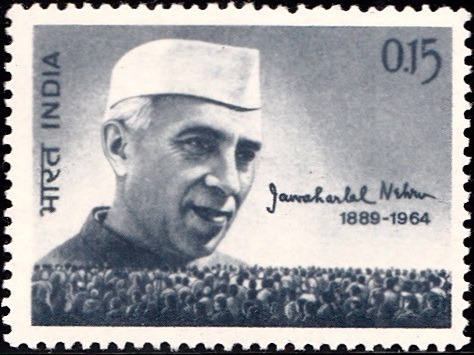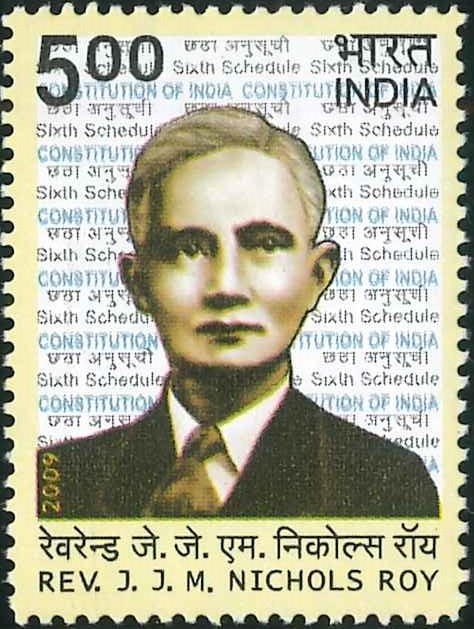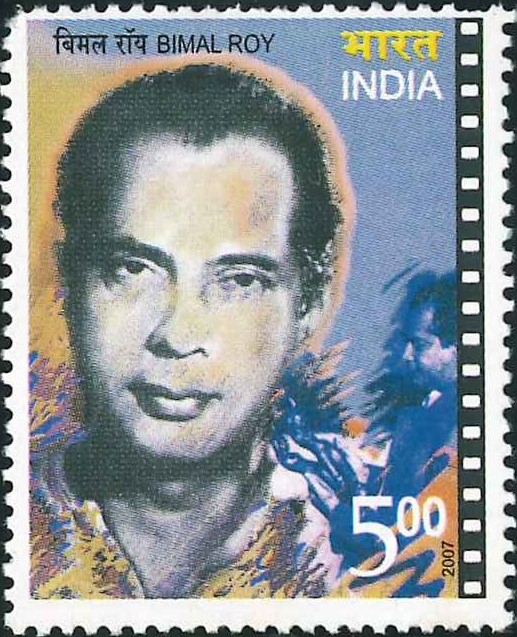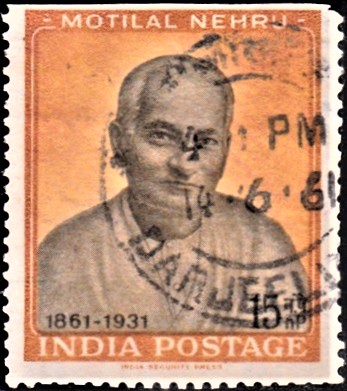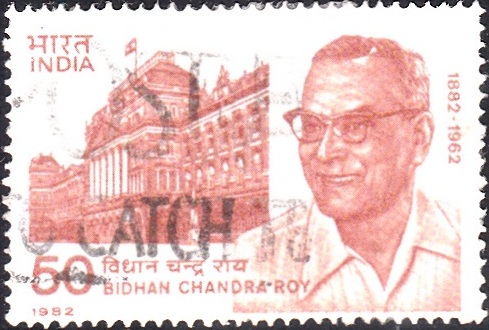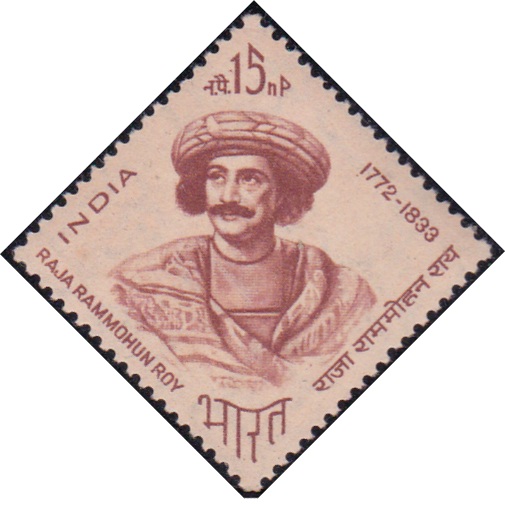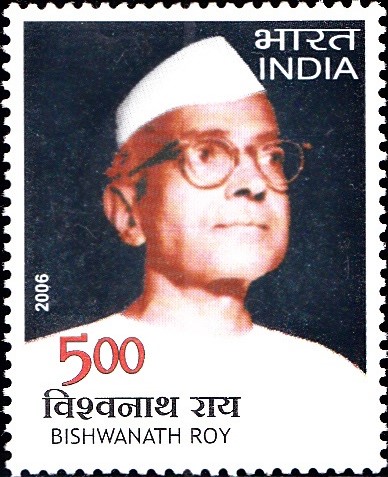
Bishwanath Roy
A commemorative postage stamp on the Birth Centenary of Bishwanath Rai, an Indian politician from Uttar Pradesh :
 Issued by India
Issued by India
Issued on Oct 31, 2006
Issued for : The Department of Posts is happy to issue a commemorative postage stamp in honour of Shri Bishwanath Roy.
Credits :
Stamp & FDC : Brahm Prakash
Cancellation : Nenu Gupta
Type : Stamp, Mint Condition
Colour : Multicolor
Denomination : 500 Paise
Stamps Printed : 0.4 Million
Printing Process : Wet–offset
Printer : Security Printing Press, Hyderabad
Name : Bishwanath Roy
Born on Dec 10, 1906 at Khukhundoo, Deoria district, Uttar Pradesh, India
Died on 1984 at Varanasi, Uttar Pradesh, India
About :
- Shri Bishwanath Roy, a veteran freedom fighter was born into a farming family at village Khukhundoo in Deoria district of Uttar Pradesh, on 10th December 1906. Son of Shri Jagat Narain Rai, he got his early education at a village school and went on to do his matriculation from Gorakhpur. Thereafter he joined St. Andrew’s College, Gorakhpur, where he came to be elected Secretary of ‘The Hindu Chhatra Sabha‘, an association of students dedicated to the Swadeshi Movement. After graduation, he joined The Law College at Allahabad in July 1929. An ardent admirer of Mahatma Gandhi, Bishwanath Roy also came to be deeply influenced by the patriotism and nationalism preached by other stalwarts like Madan Mohan Malviya and Acharya Kriplani. He also came into close contact with revolutionary leaders like Sachindra Nath Viswas, and was inspired to dedicate himself to the cause of freedom for his country by the sacrifices of revolutionaries like Ram Prasad Bismil.
- In 1928 Pandit Jawaharlal Nehru founded The Indian Youth League and Bishwanath Roy was elected as a member of the executive committee of this League. He continued to work for the League, in close association with its next President, Smt. Kamla Nehru, for the amelioration of the lot of the depressed and down-trodden, while spreading the seeds of nationalism amongst the people. As a student of law he participated in the ‘Civil Disobedience Movement’ launched by Mahatma Gandhi in 1930 and organized a complete strike in his college. While hoisting the tricolour flag at Ghantaghar at Allahabad, he and his associates were fired upon by the police, resulting into killing of two of his colleagues on the spot, and Bishwanath Roy was arrested and imprisoned. Resisting the pressure of family and friends to turn him from his chosen path and lead a comfortable life, Bishwanath Roy joined as a soldier of the ‘Hindustan Socialist Republic Army’ founded by Chandra Shekhar Azad. His activities during this period are shrouded in secrecy, but were dangerous enough for the British to hunt him down and imprison him from 1940 to 1946. Perceived as a danger to the British Empire, he was subjected to considerable mental and physical torture, his family members harassed, and his family home ransacked. In course of his imprisonment he also lost four close members of his family, including his father, and was not even permitted to perform the last rites.
- During this period, he came in contact interactions with Pandit Jawaharlal Nehru who convinced him to abandon his violent activities and follow the path of non-violence, and inducted him into the Indian National Congress.
- After independence also Bishwanath Roy continued to serve the nation, and worked tirelessly and selflessly for its reconstruction and development. Shri Bishwanath Roy sought to improve the condition of workers and peasants, as well as freedom fighters and their families, and also to awaken the rural masses for eradication of social evils. To further this end he also founded several schools and colleges in Deoria, and wrote numerous articles for leading newspapers. His published works ‘Rashtriya Gadar’ and ‘Kranti Vad’ also testify to his abiding commitment to the interest of the nation above all else.
- Elected as a Member of Parliament for a record five terms, from 1952 to 1977, he also served as Deputy Minister of Labour, Employment and Rehabilitation in the Central Government, apart from being associated with numerous public and Government bodies.
- Shri Bishwanath Roy passed away on 27th August 1984, at Benaras.
- Text : Material provided by the proponent.
Subscribe
Login
0 Comments
Oldest


